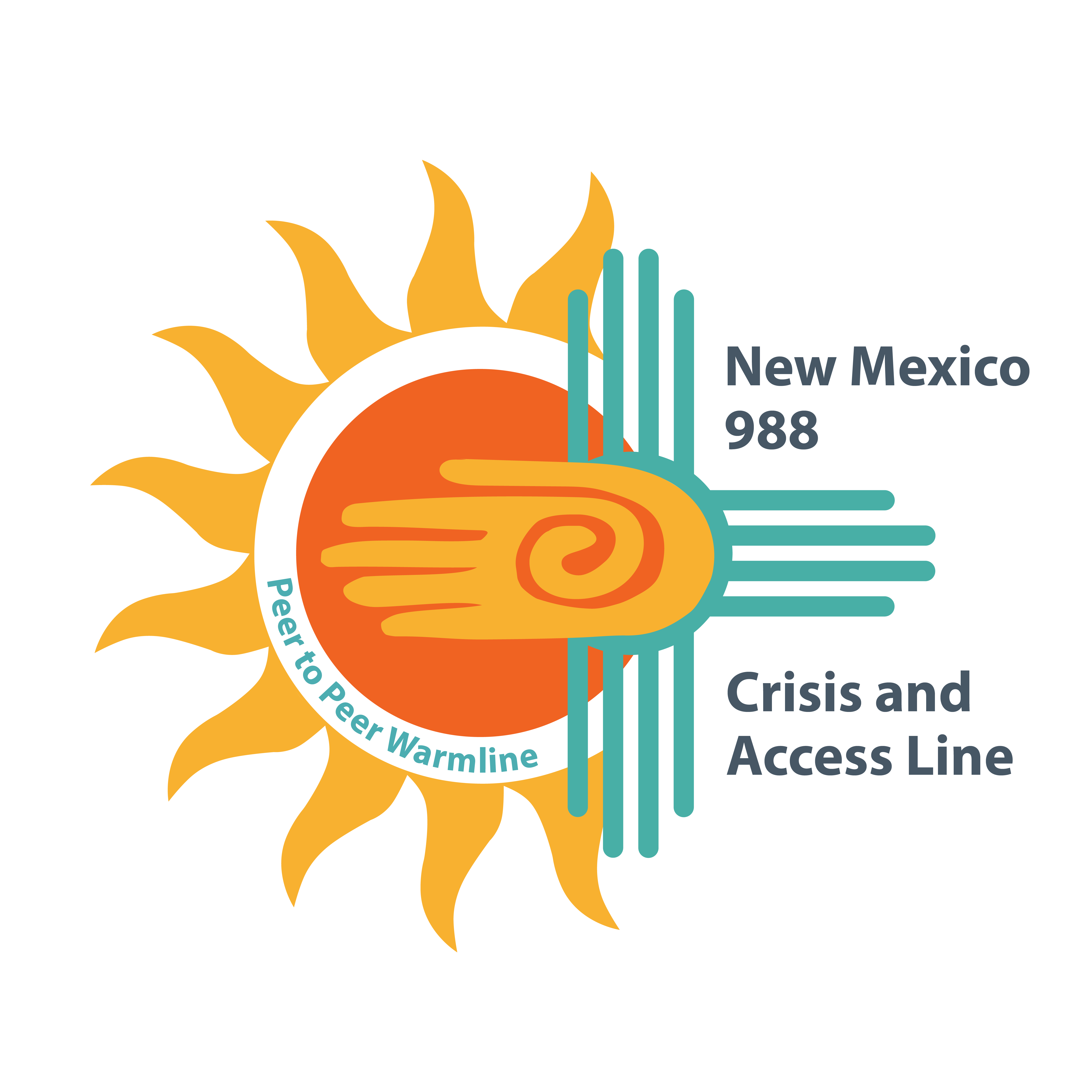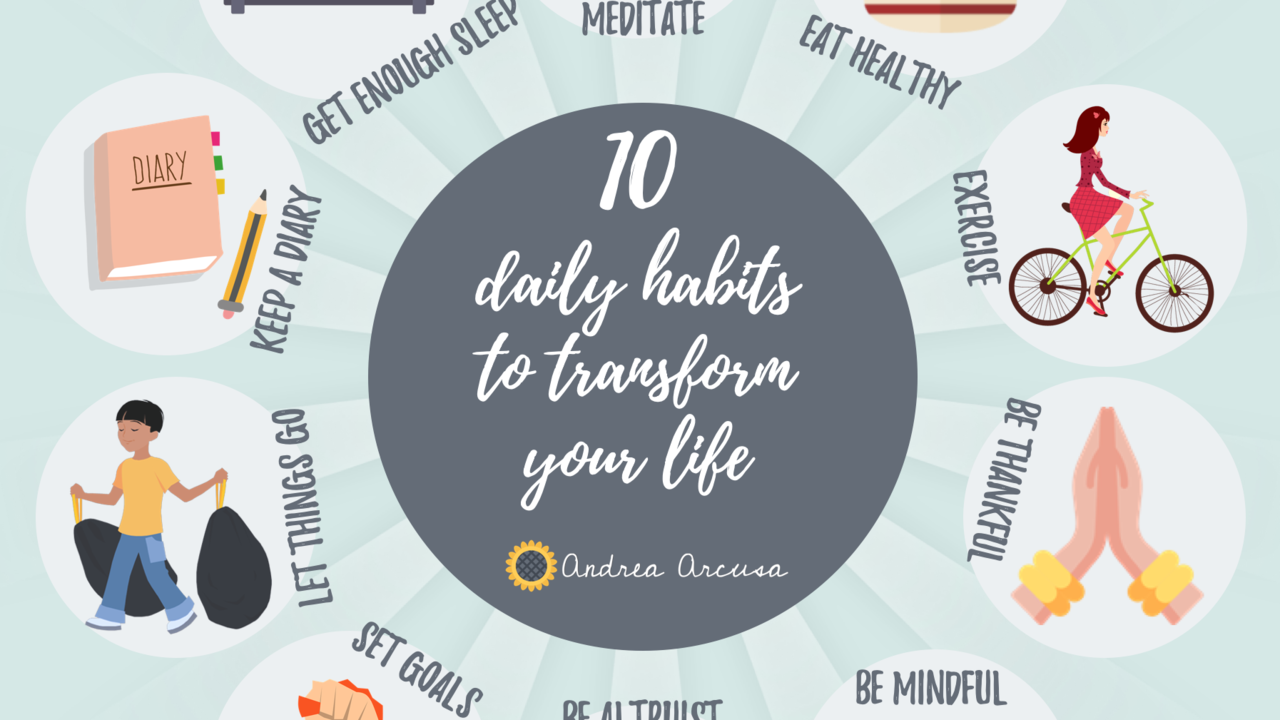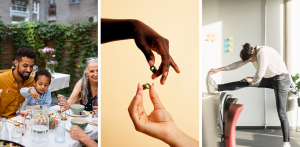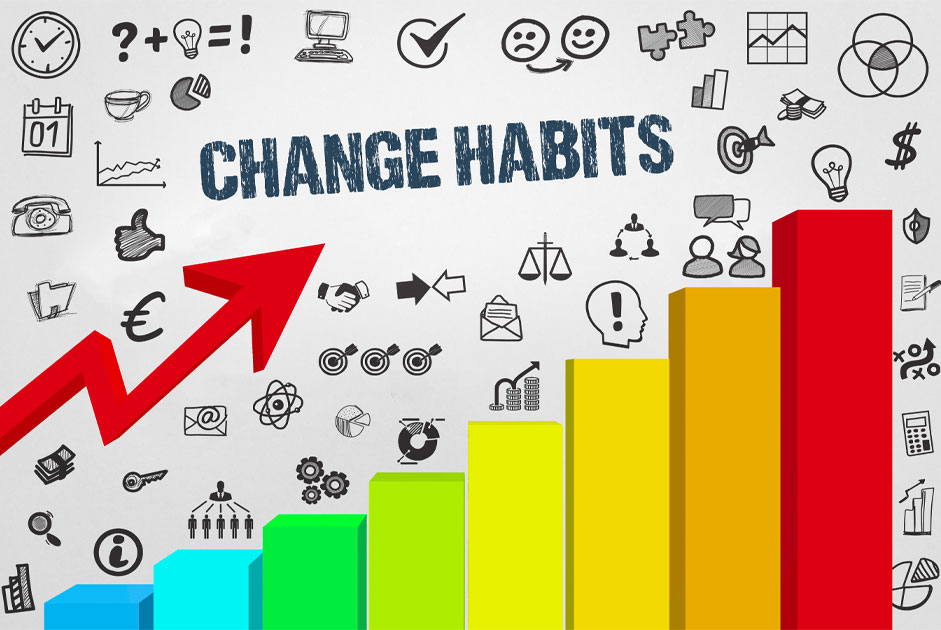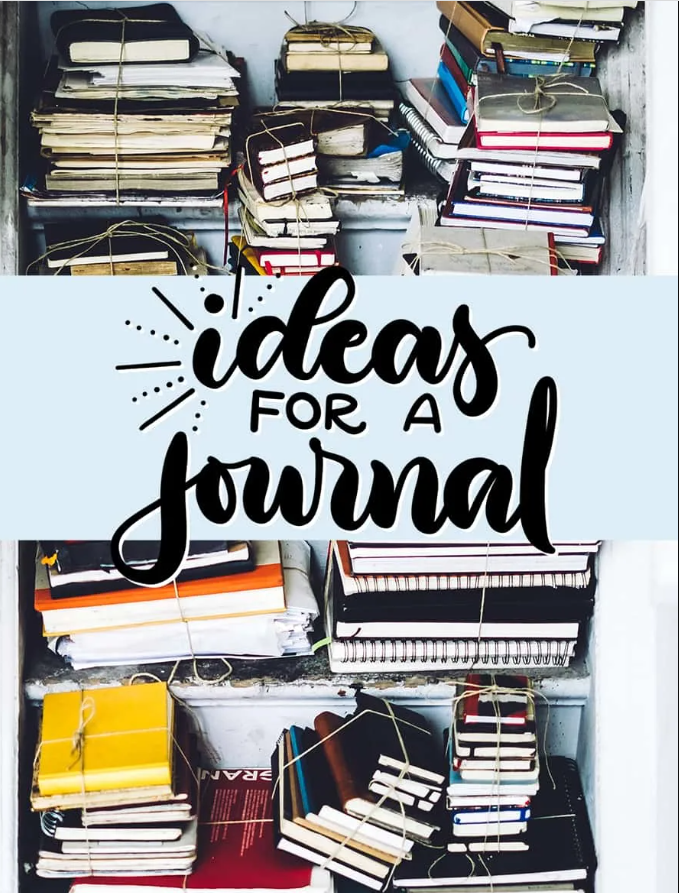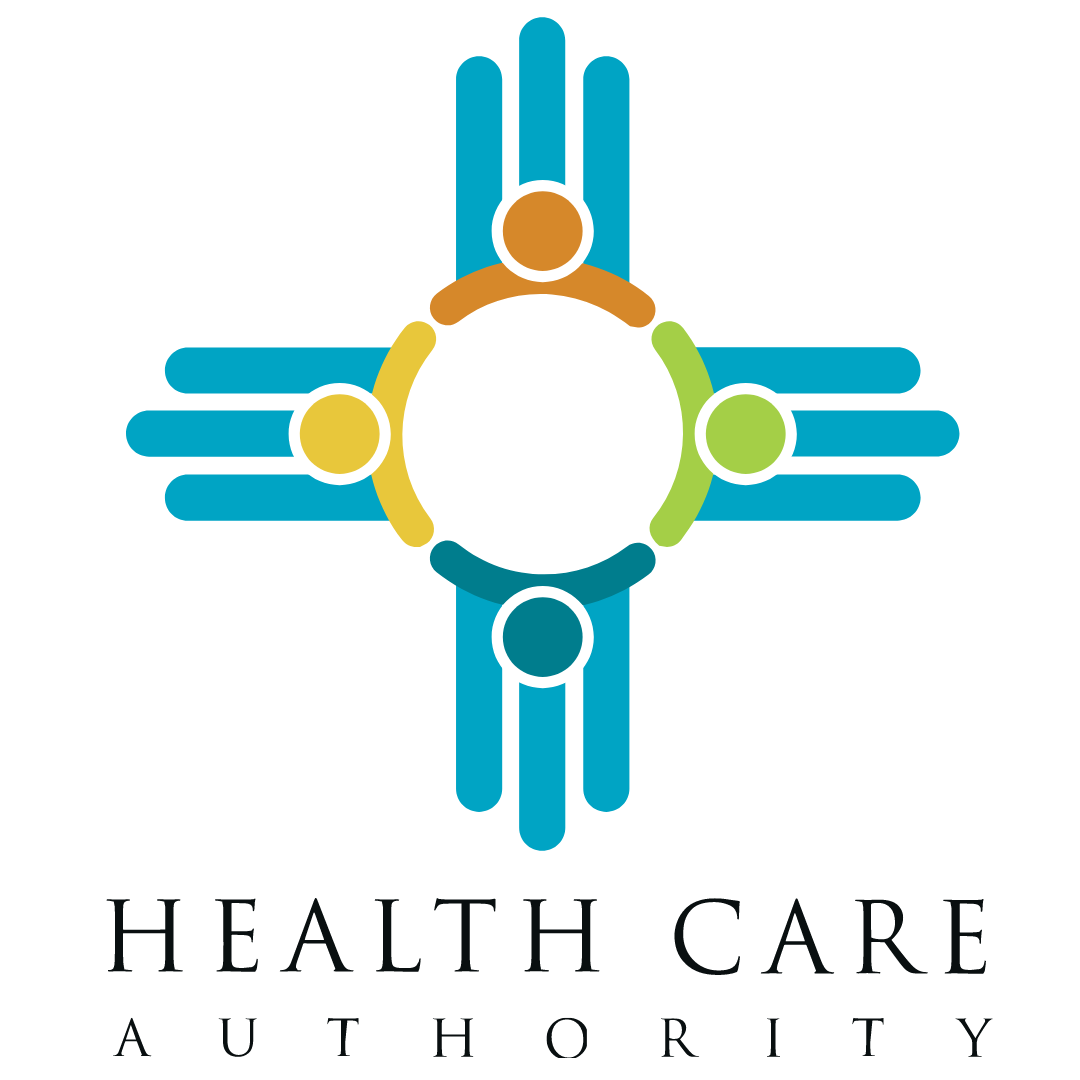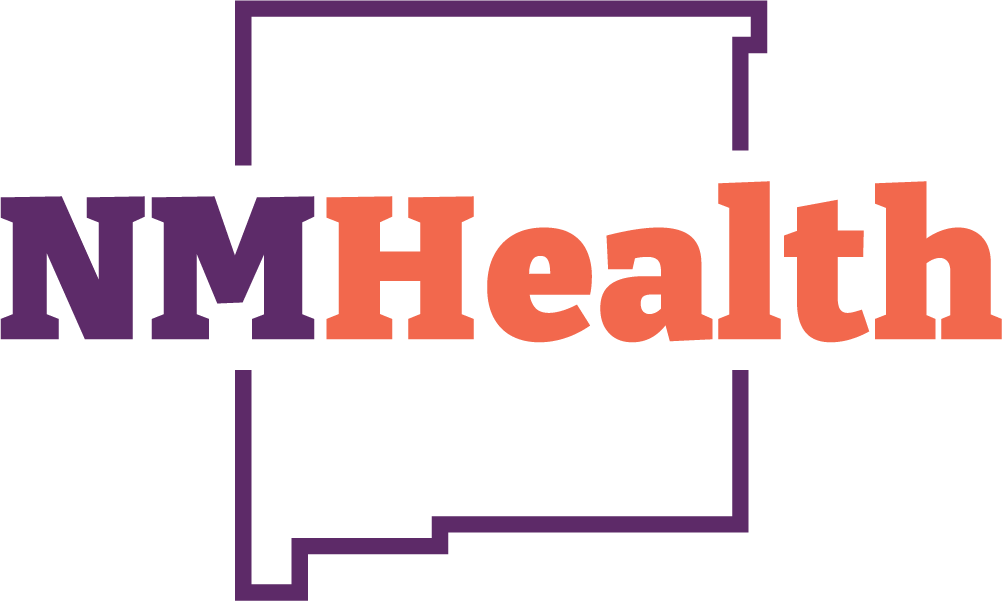Making goals and resolutions is a ritual many people take part in as they enter into a new year. Typically these are things that people decide they want to improve about themselves or their lives, such as eating healthier, exercising more often, experiencing things, or managing money. In 2023 we want to encourage you to think about how goals and resolutions can be accomplished in ways that also support your mental health and are accomplished through participation in everyday healthy habits.
Because mental health is the basis for everything people do and impacts every aspect of one’s life, including one’s behavioral, social, and emotional well-being, we want to remind you to be intentional about valuing your mental health. When you value your mental health and are intentional about participating in healthy everyday habits you can connect deeper with others, have your confidence boosted, and reduce anxiety you may have about achieving and maintaining goals and resolutions.
Here are some healthy habits to consider trying out in 2023 in your every day routine that can support your mental health:
Commit to doing things you love every day: Doing things you love every day is beneficial for your mental health. We all know how much we need breaks from work and the hustle and bustle of life. But we also need to take time for ourselves, indulge a little, and do things that make us happy. Start this year by committing to doing something you love every day. Why not try making it a tradition? Maybe it’s going for a walk or meditating for 10 minutes. Maybe it’s listening to a favorite song. Maybe it’s cooking your favorite meal (or baking!). Whatever it is, find what makes you feel good and then do that thing – at least once a day! The benefits of doing things you love will be amazing for your physical health but also for your mental health as well.
Spend more time with people who make you happy: Spending time with people who make us happy is good for our mental health. Research shows that interacting with people we’re close to boosts our mood and makes us feel more connected. It also decreases levels of depression and anxiety. The happiest people are those who spend the most time socializing with friends and family. Additionally, being around people stimulates the production of endorphins–feel-good chemicals which increase happiness, reduce pain, and can even combat addiction. So why not try spending some time with people you love on a regular basis?
Practice Gratitude: Including gratitude in your life is a way to create a positive outlook on your life. More than that, it has tangible benefits for your mental health, including reducing stress, lessening depression symptoms and boosting your mood. Gratitude is a simple concept, but sometimes difficult to keep up with. In 2023, take time for self-reflection and share your gratitude with the people around you.
Journal your feelings: Journaling is a powerful tool to cope with mental health by working through emotions and channeling thoughts. A 2018 study found that journaling for 15 minutes each day significantly reduced stress and feelings of anxiety. Other research has linked it to helping work through PTSD symptoms or depression.
If you like to journal, regularly write down a list of things you’re grateful for. Write down at least five things you’re grateful for and then reflect on why those things are important to you. It might be difficult at first, but the more you do it the easier it will become. You’ll find yourself feeling happier and more optimistic about life.
Remember there is no right or wrong way to journal. Many people journal daily. Others may only journal when stressed or need to work through something. No matter how you use it, journaling is a way you can track your progress and growth throughout the year.
Make relaxation a routine: Very few things in life are promised. Times of stress are, unfortunately, one of them. There will be times when you may feel overwhelmed or stressed out. However, you can control how you respond to the strain. Implementing relaxation techniques into a daily routine can help manage stress, and assists you in knowing how to use relaxation tools in times of overwhelm. Meditation is a popular way to relax as it can help you reach a state of calm, decrease stress and improve your mood. Some people even use music to guide them through their meditation sessions. If meditation isn’t your thing, deep breathing, reading or taking a bubble bath are also popular relaxation techniques. No matter how you choose to relax, just make it a habit.
Practice mindfulness: Mindfulness is a technique that involves focusing on the present moment and being aware of what’s happening around you. Mindfulness has been shown to improve mental health and make people feel more grounded. To practice mindfulness, find a quiet place where you won’t be interrupted. Sit up straight with your feet flat on the floor and close your eyes. Notice the sounds around you or put on some music if it helps you stay focused. Take deep breaths from your diaphragm for five minutes or until you feel calm. Observe how your body feels as you breathe in and out. When your thoughts wander off, bring them back gently to the sensations of breathing. If you start feeling bored or restless, stand up and stretch for a few seconds before sitting down again. Try this once or twice a day for 10-15 minutes. The benefits of mindfulness include improved mood, decreased stress levels and better sleep quality. You don’t need any equipment either except for your phone or computer if you are using an app.
Value social interaction: Sharing our time with others is sometimes just what we need to boost our mood or change our perspective on things. By making time for friends and family, you will decrease feelings of loneliness and ensure you have an emotional support system at your fingertips. If you can’t regularly meet in person, text messages and zoom calls are all meaningful ways to connect with others without actually seeing each other. The other side of valuing social interaction is knowing when you’ve had enough. Boundaries are an essential part of mental health that help you from pushing yourself too far. Feel empowered to say no or move plans around when your body tells you to.
Take care of your physical health: Mental health is directly tied to physical health — one cannot flourish without the other. The three main areas to target for 2023 are sleep, nutrition and exercise.
- Sleep: The state of your mental health is influenced by the sleep you get. If you don’t get enough sleep, your brain doesn’t have the chance to rest and recover. Sleep deprivation makes it harder to regulate your emotions and cope with stress, which can amplify the symptoms of existing mental illnesses. Being intentional about prioritizing your sleep is a simple way to value your mental health.
- Food and hydration: Giving your body the nutrients and hydration it needs to function is another essential part of mental health.
- Eat well: The most important thing you can do for your mental health is to eat well. This means not only eating food that provides the nutrients your body needs but also food that will make you feel great. One way to do this is by eating healthy fats and whole foods like nuts, avocados, and oily fish. A diet high in processed carbs, sugar and dairy products has been linked to higher rates of depression so if these are some of the things you eat regularly, it’s time to re-evaluate your habits. As an added bonus, following a diet high in plant-based foods has been shown to reduce symptoms of anxiety and depression. In addition to eating well-balanced meals, try adding foods to your diet that boost happiness.
- Meal planning is a great way to incorporate healthy foods and feel less stressed at dinner time. Plan out what you want to eat for the week ahead and buy groceries accordingly. It’s a lot easier to stick with healthy eating when you know what’s coming up in your menu plan!
- Hydration: Make sure you drink enough water; hydration is linked to decreased risk of anxiety and depression.
- Exercise: Being active is another way to boost your mood and make you feel good. Adding exercise to your routine gives you a chance to bond with others, reduce anxiety and boost your confidence. It doesn’t have to be heavy lifting or intense workouts; regular walks or bike rides can also boost your mental health. Start an exercise routine: We all know exercise is good for our health, but it isn’t always the easiest thing to do. With a little creativity it can be as easy as taking a walk or going for a bike ride. If you need help getting started, try enlisting your significant other, friend, or co-worker to go on a walk together during a lunch break or in the evening. Walking is one of the most accessible exercises there is. Whether you prefer to exercise alone or with someone, the benefits will be worthwhile. Exercising alone can help clear your mind and exercising with a friend or family member can increase your quality time together. When you incorporate regular exercise into your daily routine it:
- boosts mood
- reduces stress levels
- promotes sleep
- improves self esteem
- relieves depression
Go outside everyday (even if it’s cold!): Taking a walk outside is a good habit for your mental health, even if it’s cold outside! But why is this the case? First, going outside on a daily basis may help you avoid feelings of loneliness that can come from being indoors all day long. For those that work from home, it provides different scenery than the four walls of your home office. You’ll be able to interact with other people more often and get more exposure to natural light. Additionally, going outside every day may help increase your vitamin D levels which has been linked to mood improvements.
Monitor your social media intake: Our phones are our lifelines. Most of the time, they’re beside us, keeping us connected to the outside world through calls, texts and social media. The hours spent scrolling through social media, comparing ourselves to the snapshot of perfection people post, can seriously impact our self-view and stain our mental health. Constant social media use has been linked to worsened anxiety and depression symptoms, feelings of inadequacy and unhealthy sleeping habits. You can use social media in a way that doesn’t deplete your mental health. Use these tactics to make social media work for you:
- Put a limit on how long you can spend on social media.
- Don’t start or end your day with social media.
- Use the time you used to spend on social media to do something that brings you joy or relaxation.
Make yourself laugh: Sometimes, laughter is the best medicine. When you’re feeling stressed or down, do things that will make you laugh to reduce anxiety and stress. Watch your favorite TV show or movie to give your mood a boost. Or find the source within yourself. Sing while you’re in the shower or dance while cleaning your home. Dancing reduces the stress hormone cortisol in the body.
Remember that improving your mental health is a journey; it doesn’t happen overnight. You can make lasting tweaks to your well-being by intentionally adding habits to your routine. Incorporating these small changes or habits into your daily routine will positively impact your mental health. Over time, these small changes will become habits and before you know it, it’s second nature. If something is too overwhelming, take is slow!
And know that if you are struggling to get motivated to incorporate some of these positive changes you can:
- Reach out to a counselor for assistance on identifying these roadblocks and making plan to work through them. If you or someone you know needs to talk about the impact on mental health concerns being experienced, know that there are mental health professionals available to talk with at New Mexico 988, the New Mexico Crisis and Access Line (855-662-7474), and the Peer-to-Peer Warmline (855-466-7100).
- Or try out the free NMConnect Welltrack Boost app to begin your self guided mental health wellness plan. Download the app through Apple iOS or the Google Play Store today.
